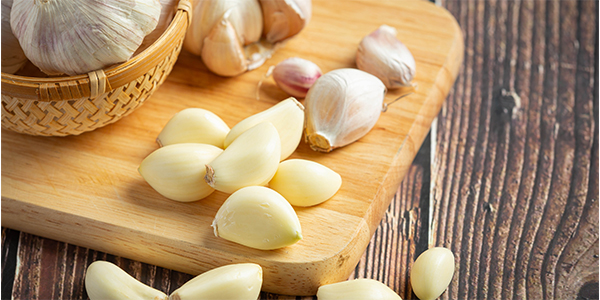Garlic, with its pungent aroma and distinct flavor, has long been revered not only in culinary traditions but also in various cultural and religious practices worldwide. From ancient Ayurvedic and Unani medicine to Hindu and Christian beliefs, garlic holds a revered status for its medicinal properties and spiritual significance.
Mythology and Symbolism:
In Hindu mythology, garlic finds mention in texts like the Mahabharata and the Ramayana. It is believed that garlic originated from drops of nectar that fell from the pot of immortality during the churning of the cosmic ocean. Therefore, it is considered sacred and is offered to deities during rituals to ward off evil spirits and bring protection.
Similarly, in Christian folklore, garlic has been associated with protection against vampires and evil spirits. This belief is deeply rooted in the European folklore and has transcended into popular culture through various books and movies.
Medicinal Uses:
Ayurveda, the ancient Indian system of medicine, extols the medicinal virtues of garlic. According to Ayurvedic texts, garlic possesses heating properties and is beneficial for balancing the Vata and Kapha doshas. It is used to treat various ailments, including respiratory disorders, digestive issues, and even rheumatism.
In Unani medicine, which originated from Greek and Arabic traditions, garlic is considered a potent remedy for cardiovascular health. It is believed to lower cholesterol levels, regulate blood pressure, and improve circulation, thereby reducing the risk of heart diseases.
Modern science corroborates many of these traditional claims. Studies have shown that garlic contains compounds like allicin, which exhibit antimicrobial, antioxidant, and anti-inflammatory properties. These properties make garlic effective in combating infections, reducing inflammation, and even lowering the risk of certain cancers.
Religious and Paranormal Remedies:
In Hindu rituals, garlic is often used in the form of a garland or offered in prayers to deities as a symbol of protection and purification. It is also believed to repel negative energies and bring positivity to the surroundings.
Similarly, in Christian traditions, garlic has been used as a protective charm against malevolent forces. It is often hung around doorways or worn as an amulet to ward off evil spirits and bring blessings.
Culinary Delight:
Beyond its medicinal and spiritual significance, garlic holds a prominent place in global cuisines. Whether roasted, sautéed, or raw, garlic adds depth of flavor to dishes ranging from soups and stews to sauces and marinades. It is a staple ingredient in Mediterranean, Asian, and Latin American cuisines, contributing not only to taste but also to health benefits.
Conclusion:
In conclusion, garlic’s journey from ancient mythology to modern medicine is a testament to its enduring legacy. Across cultures and centuries, garlic has been revered for its medicinal properties, symbolizing protection, purification, and vitality. Whether used in traditional remedies, culinary creations, or spiritual practices, garlic continues to weave its aromatic magic, enriching both body and soul. So, the next time you savor the pungent aroma of garlic in your favorite dish, remember the rich tapestry of mythology, medicine, and spirituality that accompanies this humble yet powerful bulb.

